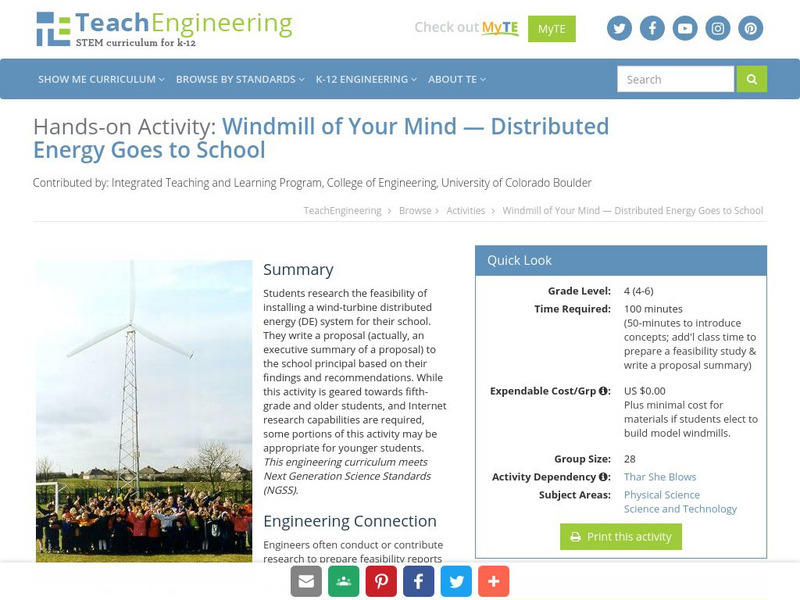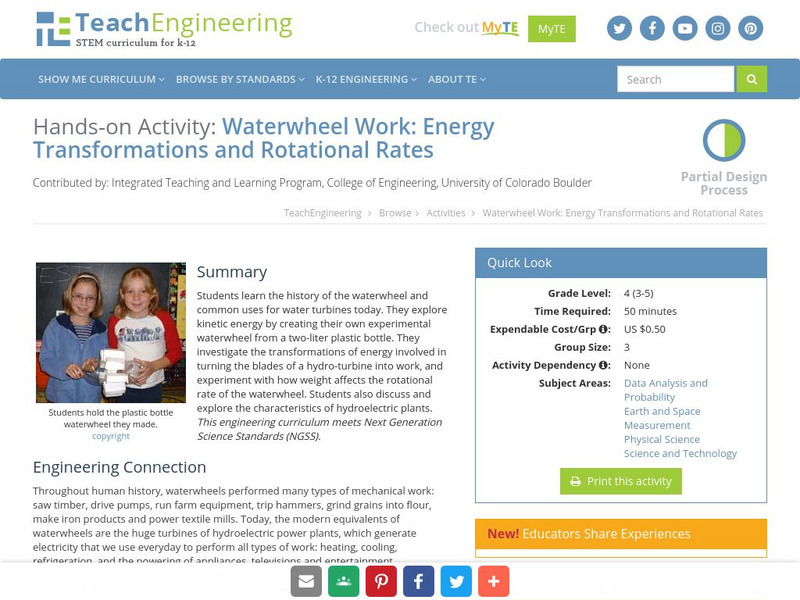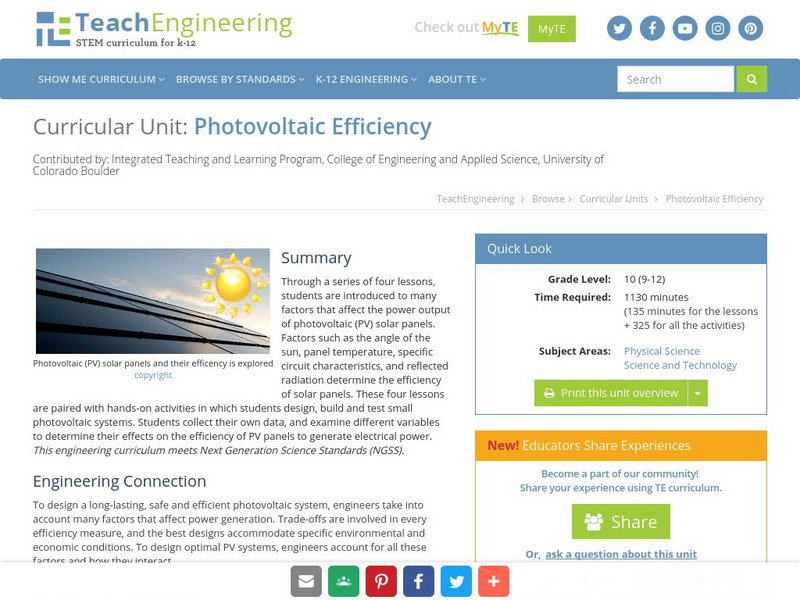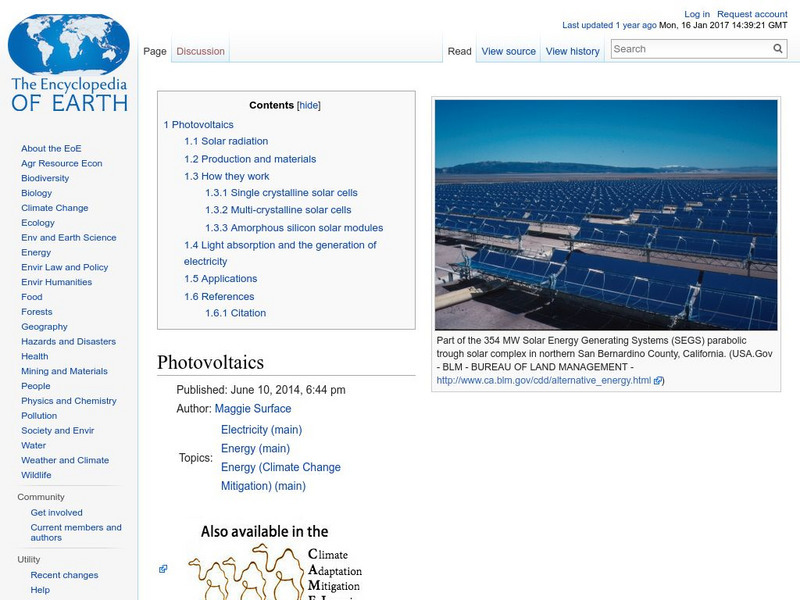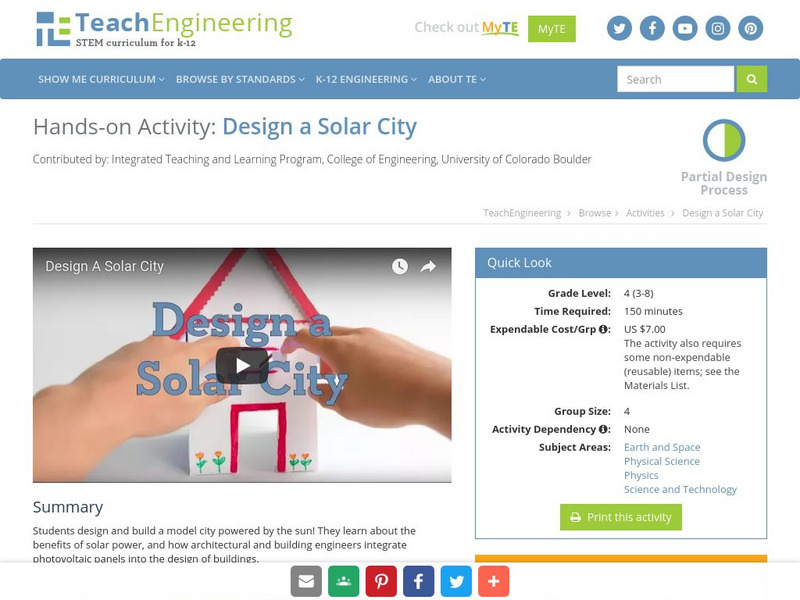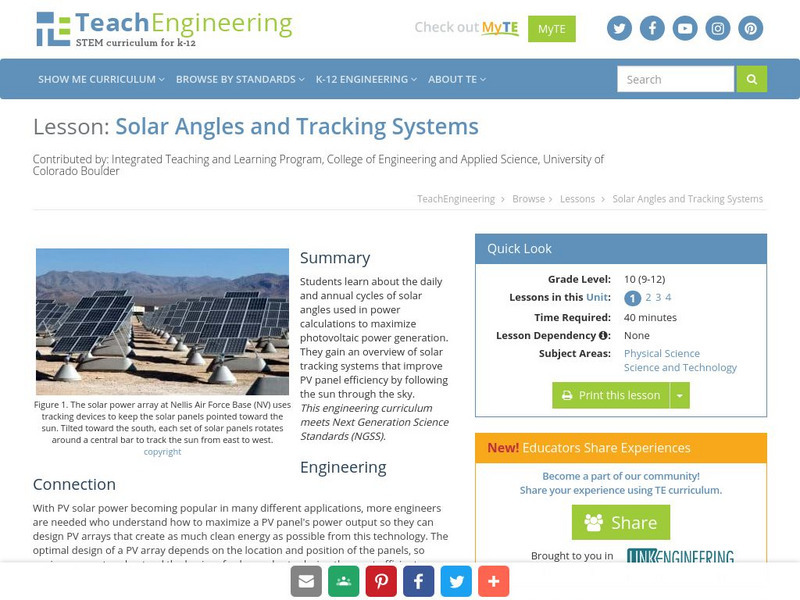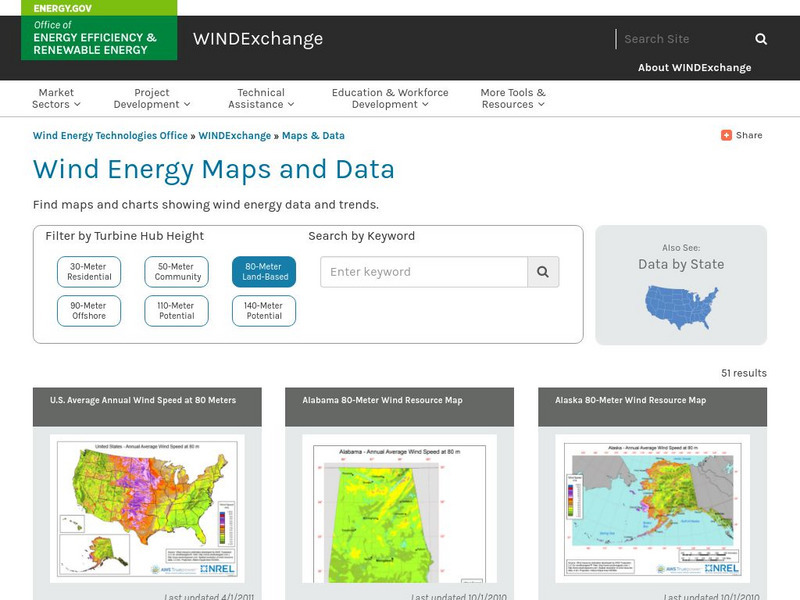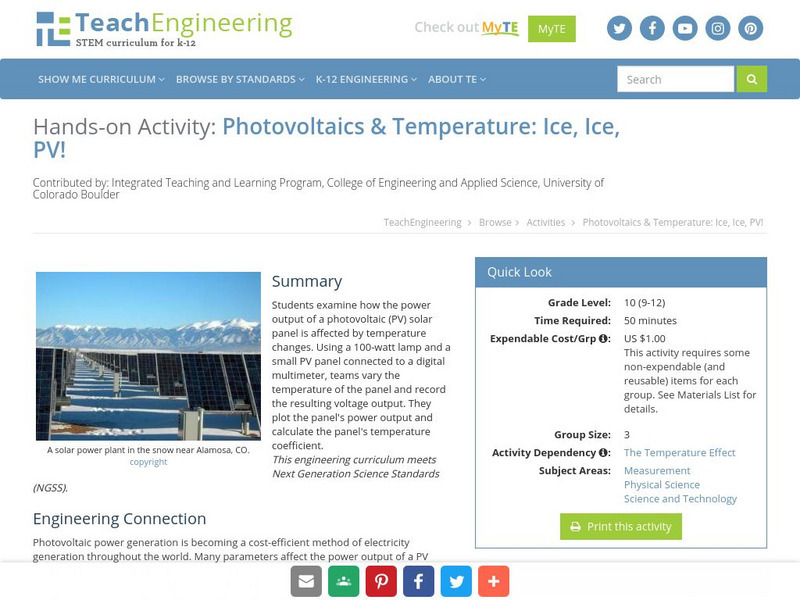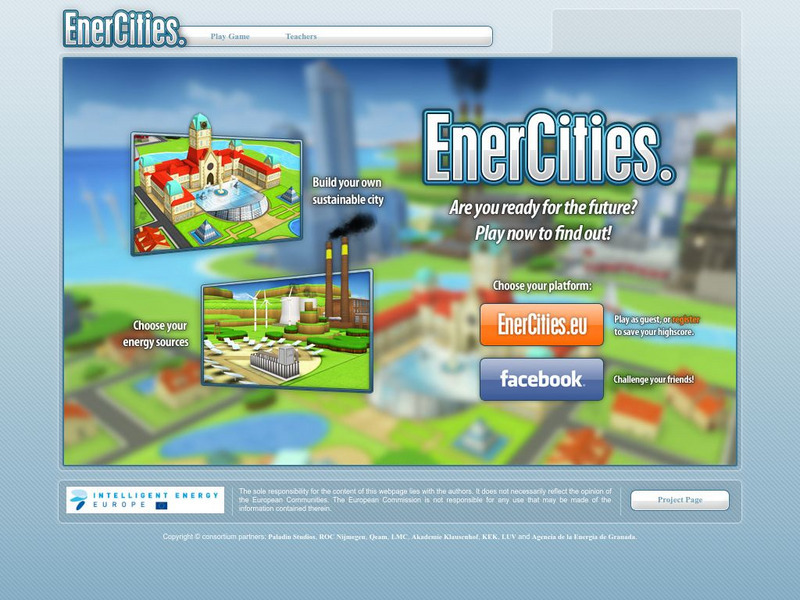National Geographic
National Geographic: Energy Solutions: Tapping Into Topography of Lake Turkana
In this lesson, students read and analyze articles about the alkaline water in Lake Turkana in Kenya, and about a wind energy project near Lake Turkana. They then examine the many factors that must be considered when undertaking this...
Other
Texas Comptroller of Public Accounts: The Energy Report: Wind Energy [Pdf]
Chapter 11 of a report on the energy industry in Texas. It looks at wind energy, its history, and how it is used. The wind power industry in Texas is described, its economic importance, how it is produced and transmitted, and its...
Science Buddies
Science Buddies: Biodiesels: Converting Oil Into Clean Fuel
Experiment making biodiesel from different types of oil and determine which oils give the best result. This science fair project from Science Buddies, although in an abbreviated format compared to other Science Buddies experiments, gives...
Science Buddies
Science Buddies: Leaky Clues to Dam Design: How Reservoir Height Affects Hydroel
It's hard to believe that the same water that you use every day to quench your thirst, cook with, bathe in, swim in, and wash your clothes and dishes, is capable of another trick-it can make electricity. Electricity can be generated...
TeachEngineering
Teach Engineering: Windmill of Your Mind: Distributed Energy Goes to School
Students research the feasibility of installing a wind-turbine distributed energy (DE) system for their school. They write a proposal (actually, the executive summary of a proposal) to the school principal based on their findings and...
TeachEngineering
Teach Engineering: Waterwheel Work
Students learn the history of the waterwheel and common uses for water turbines today. They explore kinetic energy by creating their own experimental waterwheel from a two-liter plastic bottle. They investigate the transformations of...
TeachEngineering
Teach Engineering: Photovoltaic Efficiency
Through a series of four lessons, students are introduced to many factors that affect the power output of photovoltaic (PV) solar panels. Factors such as the angle of the sun, temperature of the panels, specific circuit characteristics,...
TeachEngineering
Teach Engineering: Passive Solar Design
Students are introduced to passive solar design for buildings--an approach that uses the sun's energy and the surrounding climate to provide natural heating and cooling. They learn about some of the disadvantage of conventional heating...
Encyclopedia of Earth
Encyclopedia of Earth: Photovoltaics
Article explaining what photovoltaic cells are, their role in solar energy, how they work, how electricity is produced, and applications of this technology. (Published: April 24, 2010)
TeachEngineering
Teach Engineering: Optimize! Cleaner Energy Options for Rural China
Students work in engineering teams to optimize cleaner energy solutions for cooking and heating in rural China. They choose between various options for heating, cooking, hot water, and lights and other electricity, balancing between the...
TeachEngineering
Teach Engineering: Power Your House With Water
Students learn how engineers design devices that use water to generate electricity by building model water turbines and measuring the resulting current produced in a motor. Students work through the engineering design process to build...
TeachEngineering
Teach Engineering: A New Angle on Pv Efficiency
Students examine how the orientation of a photovoltaic (PV) panel relative to the sun affects the efficiency of the panel. Using sunshine (or a lamp) and a small PV panel connected to a digital multimeter, students vary the angle of the...
TeachEngineering
Teach Engineering: Concentrating on the Sun With P Vs
Students design, build and test reflectors to measure the effect of solar reflectance on the efficiency of solar PV panels. They use a small PV panel, a multimeter, cardboard and foil to build and test their reflectors in preparation for...
TeachEngineering
Teach Engineering: Design a Solar City
Students design and build a model city powered by the sun! They learn about the benefits of solar power, and how architectural and building engineers integrate photovoltaic panels into the design of buildings.
TeachEngineering
Teach Engineering: Solar Angles and Tracking Systems
Students learn about the daily and annual cycles of solar angles used in power calculations to maximize photovoltaic power generation. They gain an overview of solar tracking systems that improve PV panel efficiency by following the sun...
TeachEngineering
Teach Engineering: Concentrated Solar Power
Students learn how the total solar irradiance hitting a photovoltaic (PV) panel can be increased through the use of a concentrating device, such as a reflector or lens. This is the final lesson in the Photovoltaic Efficiency unit and is...
US Department of Energy
U.s. Department of Energy: Wind Program: Wind Powering America: Maps
An interactive map of the United States that gives information about each state's wind power potential.
State Energy Conservation Office-Texas
Seco: Biomass: Nature's Most Flexible Energy Resource [Pdf]
Sources of biomass fuel are described, ways it is used, and the economic opportunities available to Texas farmers and industries that produce biomass fuels.
National Geographic
National Geographic: Stakeholder Debate: Wind Energy
Using a case study of the Cape Wind Project in Nantucket Sound, students examine the various points of view of stakeholders, and hold a debate to argue about the pros and cons of this wind energy project. Includes handouts for...
TeachEngineering
Teach Engineering: Zero Energy Housing
Students investigate passive solar building design with a focus solely on heating. They learn how insulation, window placement, thermal mass, surface colors, and site orientation play important roles in passive solar heating. They use...
TeachEngineering
Teach Engineering: Ice, Ice, Pv!
Students examine how the power output of a photovoltaic (PV) solar panel is affected by temperature changes. Using a 100-watt lamp and a small PV panel connected to a digital multimeter, teams vary the temperature of the panel and record...
TeachEngineering
Teach Engineering: Pointing at Maximum Power for Pv
Student teams measure voltage and current in order to determine the power output of a photovoltaic (PV) panel. They vary the resistance in a simple circuit connected to the panel to demonstrate the effects on voltage, current, and power...
Intelligent Energy – Europe
European Commission: Enercities Game
Build your own metropolis, keep it sustainable and grow you population to 200. In order to expand your city you will need to find the perfect balance between economy, environment and your citizens' well-being. Good luck!
Other
Union of Concerned Scientists: Science for a Healthy Planet and Safer World
The official website for Union of Concerned Scientists provides information on environmental issues and suggestions on actions people can take to curb environmental harm.
Other popular searches
- Renewable Energy Resources
- Renewable Energy Sources
- Renewable Energy Quiz
- Renewable Energy Poster
- Non Renewable Energy Sources
- Renewable Energy Unit
- Non Renewable Energy
- Geothermal Renewable Energy
- Renewable Energy Game
- Renewable Energy Crossword
- Renewable Energy in Florida
- Renewable Energy Science



![Texas Comptroller of Public Accounts: The Energy Report: Wind Energy [Pdf] eBook Texas Comptroller of Public Accounts: The Energy Report: Wind Energy [Pdf] eBook](https://d15y2dacu3jp90.cloudfront.net/images/attachment_defaults/resource/large/FPO-knovation.png)


